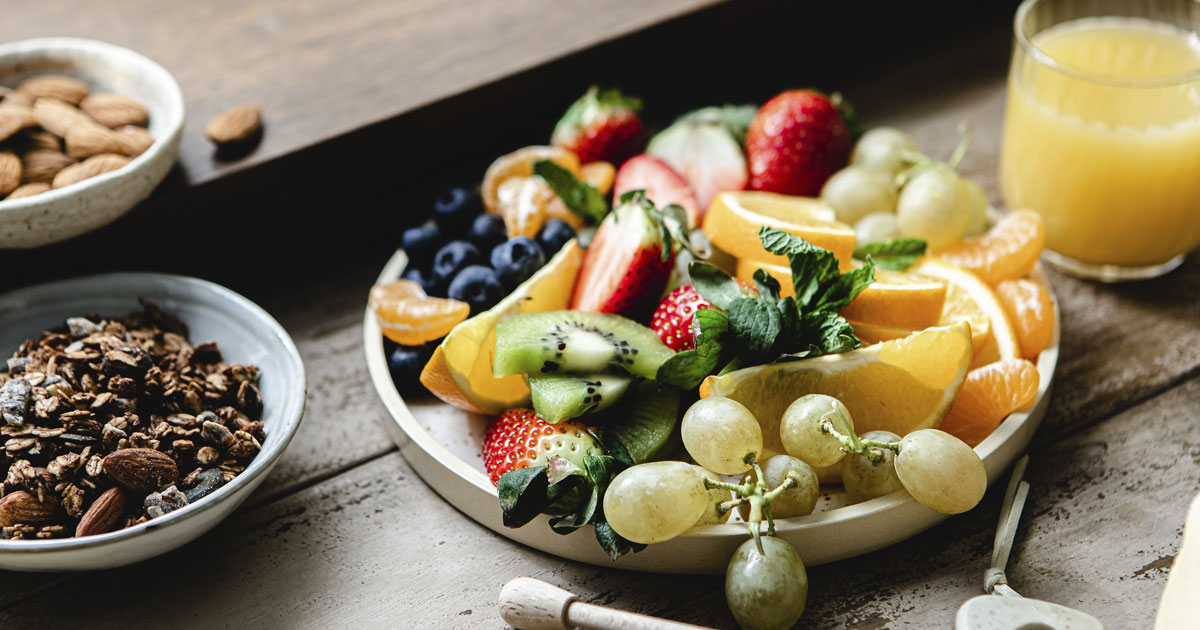
Fiber has long been recognized as an essential part of a healthy diet, yet most Americans consume barely half the recommended daily amount. This persistent gap presents food manufacturers with a clear opportunity to meet nutritional needs while creating appealing new products. Fruit-based ingredients offer an effective way to increase fiber content while simultaneously bringing natural flavor, appealing texture, and additional nutrients to a wide range of food and beverage applications.
Dietary fiber consists of plant materials that the human body cannot fully digest or absorb. Unlike other carbohydrates, fiber passes through much of the digestive system relatively intact, providing numerous health benefits along the way. Soluble fiber is one of the two main types, and it dissolves in water to form a gel-like substance that can help lower blood cholesterol and glucose levels. By contrast, insoluble fiber doesn’t dissolve in water but adds bulk to stool and helps food move through the digestive tract, reducing the risk of constipation and supporting overall digestive comfort.
Many fruits contain a beneficial mix of both types of fiber, which is why having fruit in one’s diet is the best way to get the amount you need. The U.S. Department of Agriculture (USDA) recommends adults consume 25-38 grams of fiber daily from food, depending on age and gender. Unfortunately, the average American intake of fiber is only about 15 grams. But even beyond digestion, fiber consumption is believed to be beneficial for numerous aspects of health like reducing the risk of heart disease, assisting with weight management, and improving blood sugar control.1
While all fruits have some amount of fiber, there are some examples that really stand out as fiber champions. But more than fiber content, these fruits are also complete nutritional packages, loaded with vitamins, minerals, and antioxidants. The following fruits are some of nature’s best vehicles for fiber:
Many food manufacturers turn to isolated fiber additives when developing higher-fiber products, but fruit-based ingredients offer several distinct advantages. Unlike highly processed fiber supplements, which often consist of a single type of isolated fiber, fruit ingredients provide a natural matrix of both soluble and insoluble fibers. This natural fiber combination more closely mimics what occurs in whole foods, providing a more complete range of benefits.
In product applications, fruit-based fibers typically perform better than isolated additives. One example of improved performance is their easy integration into formulations; this contributes to improved texture and mouthfeel without the grittiness or pastiness sometimes associated with fiber additives, which can also contribute to bloating or discomfort in some consumers. Fruit ingredients can help maintain moisture in baked goods (such as apple fiber mini muffins and apple fiber deli crackers), provide structure in frozen products, and add body to beverages without compromising sensory appeal.
At FruitSmart, we specialize in transforming fiber-rich fruits into high-quality ingredients that retain their nutritional integrity. Through our carefully controlled processing methods, we preserve the natural fiber content of fruits while creating versatile ingredients for multiple applications. Our comprehensive range of fiber-rich fruit products includes:
By working with FruitSmart, manufacturers gain access not just to premium ingredients but also to formulation expertise that can help maximize the functional benefits of fruit fiber. Our team understands how these ingredients perform in different applications and can provide guidance on incorporating them into new or existing products. This support helps ensure success when developing higher-fiber options that meet both nutritional goals and consumer expectations.
As consumers increasingly seek products with nutritional benefits, incorporating fruit-based fiber offers manufacturers a natural way to meet this demand. FruitSmart’s range of fiber-rich fruit ingredients provides the dual advantage of nutritional enhancement and functional performance, without compromising flavor or texture. Whether you're developing a new high-fiber product or looking to improve an existing formulation, FruitSmart has solutions to help you succeed. Contact us today to explore how fruit-based fiber can enhance your product line and appeal to health-conscious consumers.
